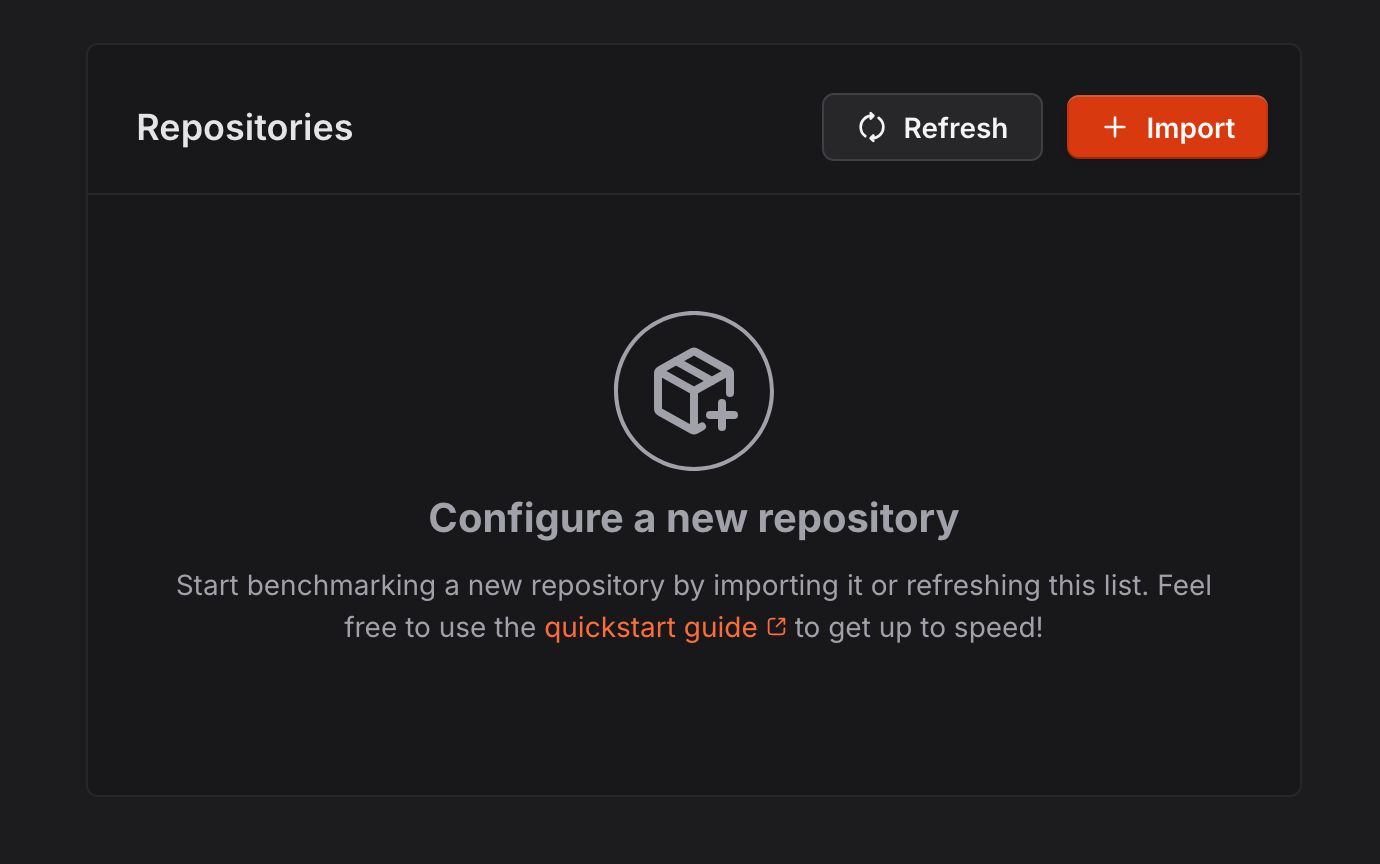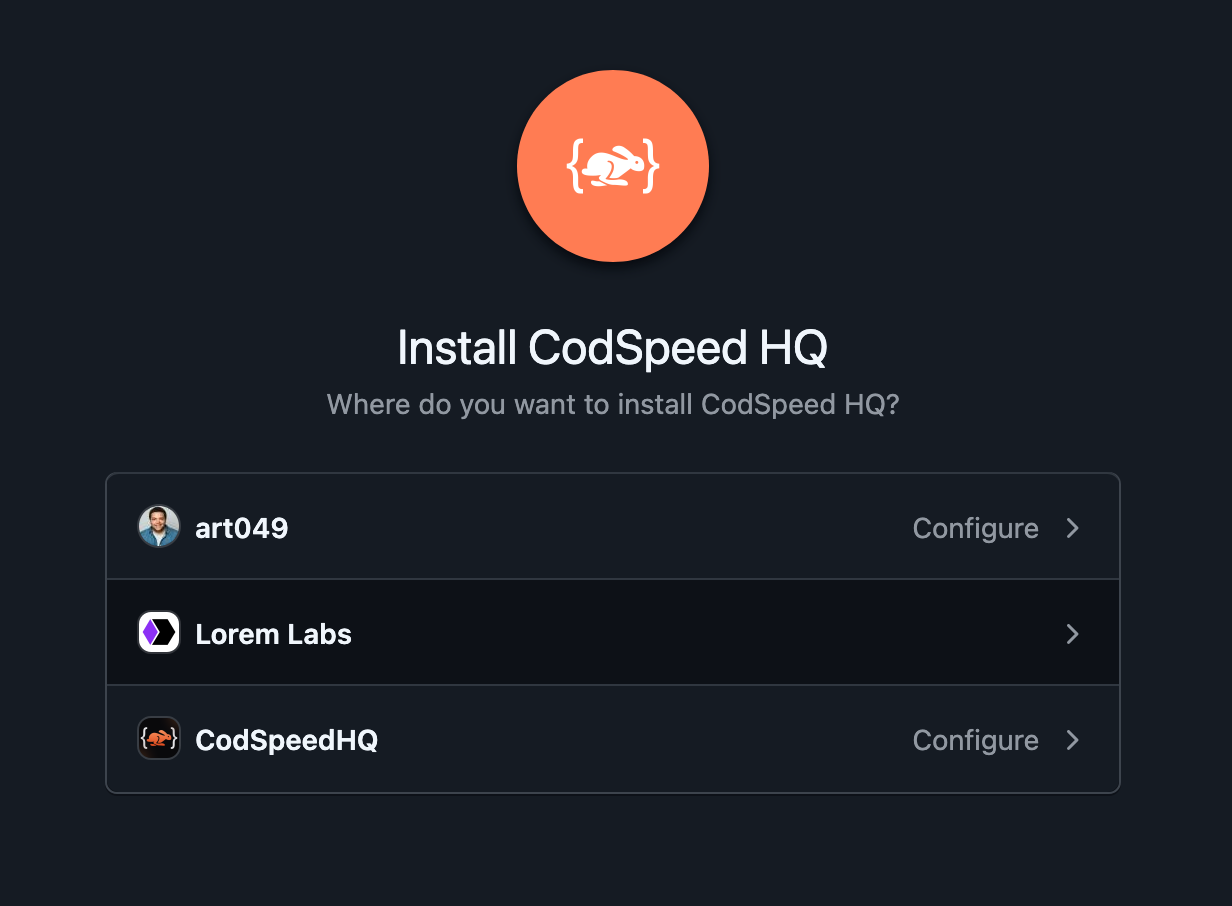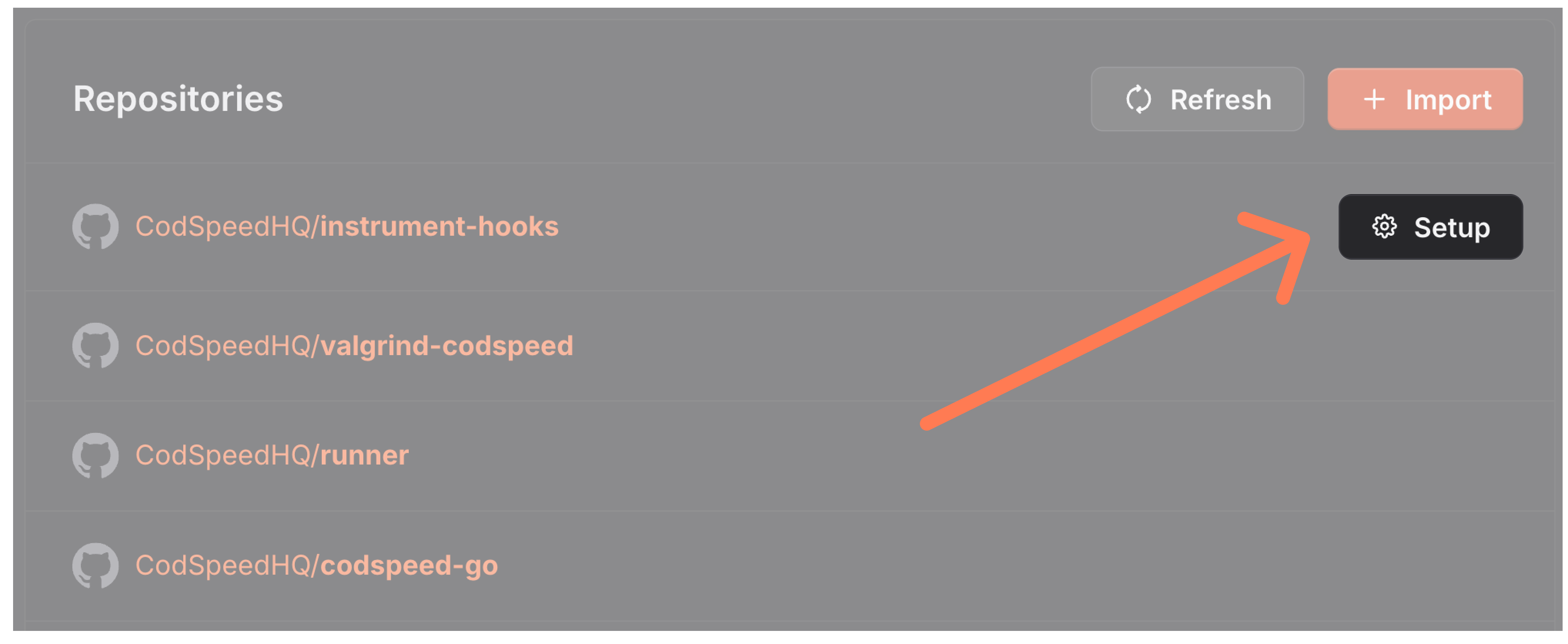- Create Performance Tests
- Connect your Repository
- Run the Tests in your CI
- Introduce a Performance Regression
Create Performance Tests
-
Install the CodSpeed plugin for
pytest: -
Write a performance test using the
@pytest.mark.benchmarkmarker:tests/test_sum_squares.py -
Run your performance tests locally:
Great! We set up our first performance test. Now, let’s track the performance in the CI with CodSpeed!terminal
Connect your Repository
- Login on CodSpeed
-
Go to settings and install the CodSpeed
GitHub App by clicking on the “Import” button.

-
Select the organization or the user and add the repositories you want to use
with CodSpeed:

-
Back in CodSpeed settings, configure a repository by clicking on the “Setup”
button:

Run the Tests in your CI
-
Create a new GitHub Actions workflow file to run your benchmarks:
.github/workflows/codspeed.yml
-
Create a Pull Request installing the workflow to the repository and wait for
the report in the comments:

- Merge it and congrats 🎉, CodSpeed is installed!
Introduce a Performance Regression
-
Let’s change the implementation of the
sum_squareswith a more concise and elegant one:tests/test_sum_squares.py - Open a Pull Request and wait for the CodSpeed report:


Next Steps
What is CodSpeed?
Find out more details on how CodSpeed works
pytest-codspeed documentation
Learn more on how to create performance tests with pytest-codspeed
Explore the Performance Metrics
Understand the performance metrics generated by CodSpeed
Enforce Performance Checks
Make sure you or team members never merge unexpected performance regressions